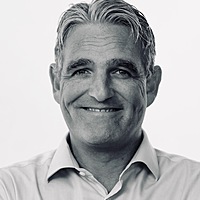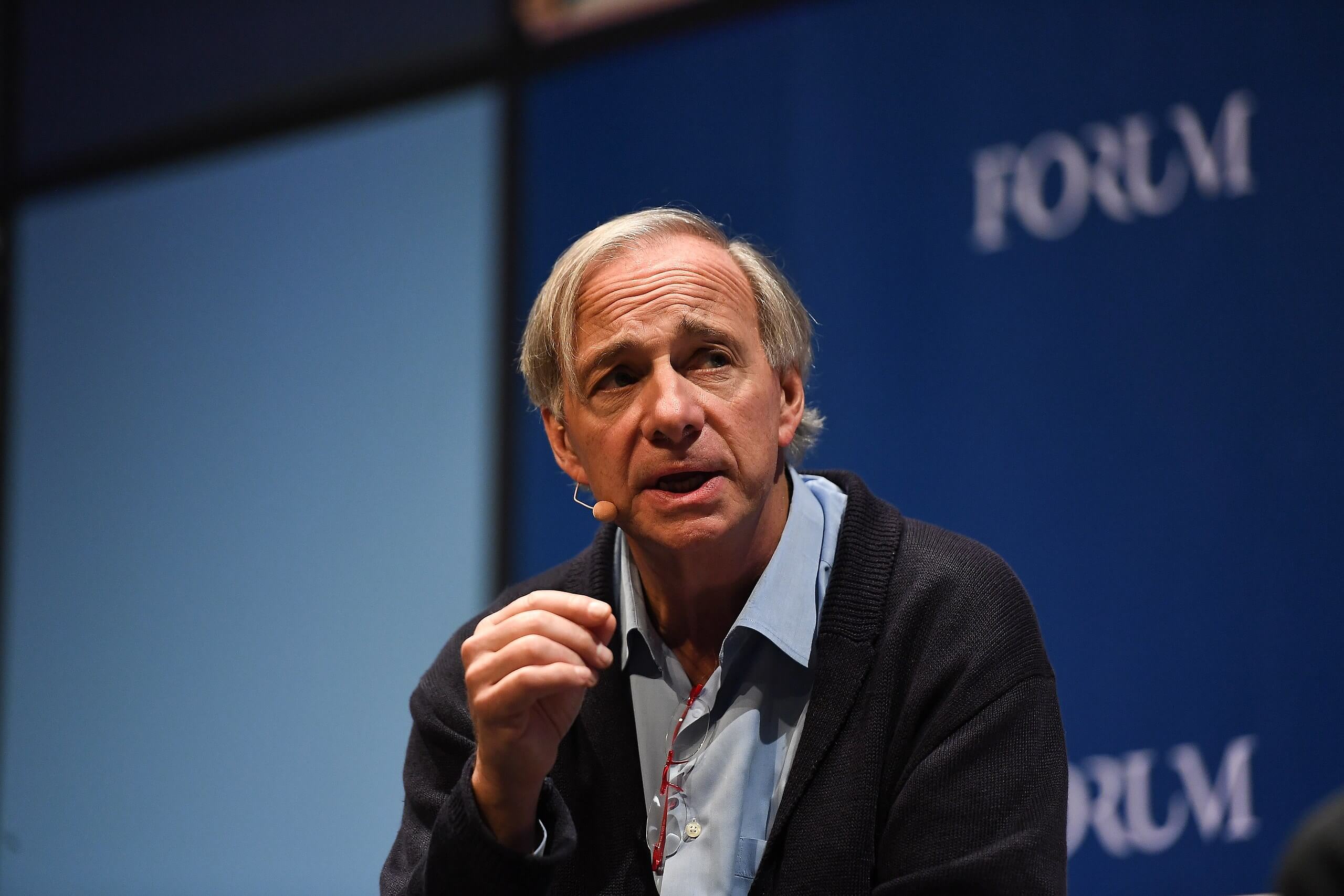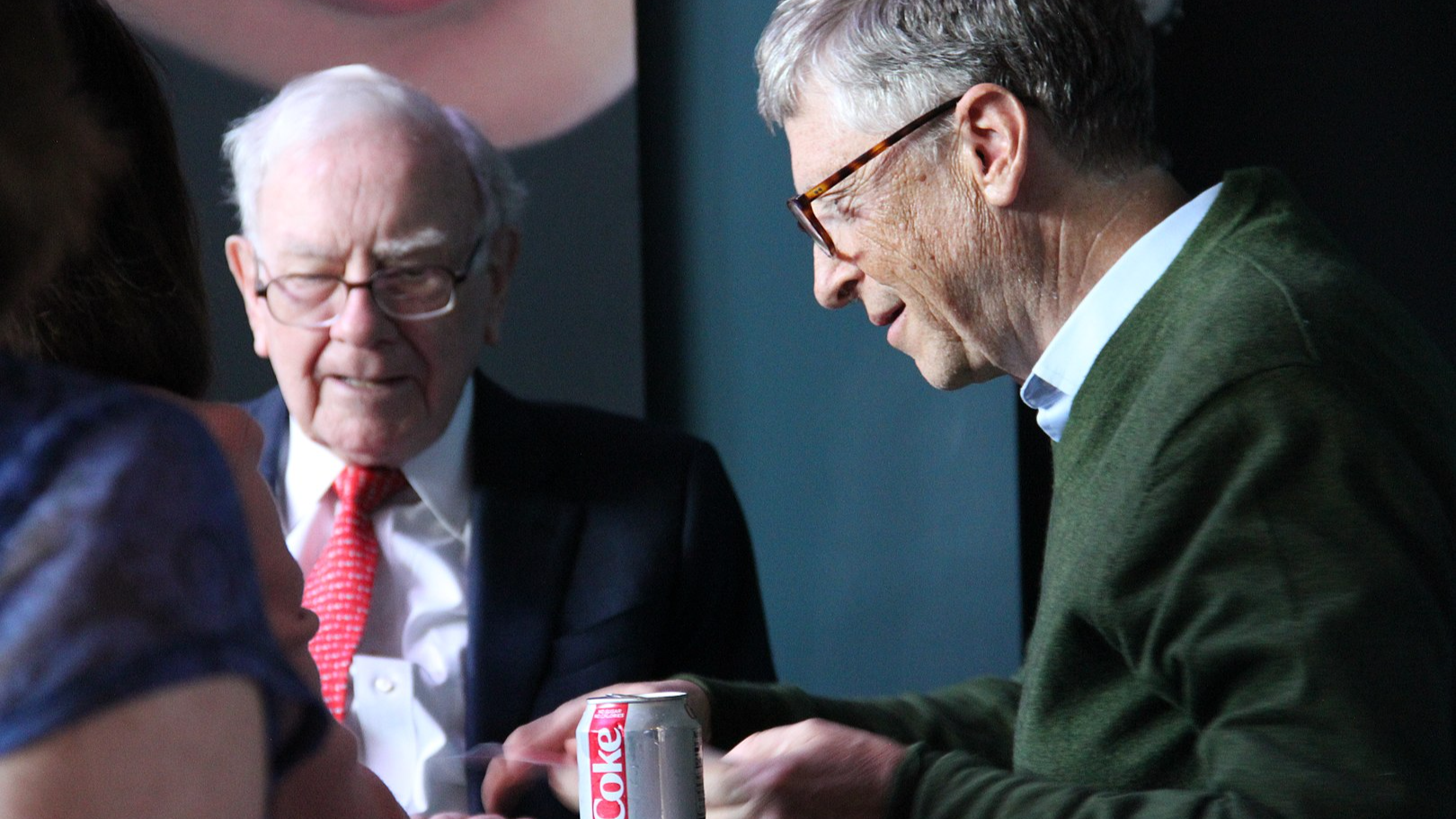Ray Dalio's 6 crucial themes for the next few years

When macro maestro Ray Dalio speaks, investors listen. (True, they don't always agree. But they listen.) Especially when the world can't seem to decide what sort of year it's having and has absolutely no idea about what the next few years hold.
But the next few years were very much on the Bridgewater founder and Co-CIO's mind when he sat down recently for a rare interview on Squawk Box with CNBC's Andrew Sorkin at the SALT Global Thought Leadership forum in New York.
In the twenty-minute interview Dalio unloaded on a range of topical subjects of great interest to investors everywhere, including:
- The consequences of a new attitude to debt monetisation (ie governments borrowing money to finance spending)
- Whether technology innovation can drag us from inflation to deflation
- Why cash is still trash
- How Crypto can be worthless but still be a canny diversification play
- How to play the internal political conflict in the US
- What the rise of China means for investors
In this wire, I'll give you the key takeaways on each of the above topics. But before I do, here's a quick note about Ray Dalio to put the topics in context.
Dalio is a billionaire hedge fund manager who describes his firm Bridgewater Associates (BA), which has about USD$160 billion FUM, as "a global macro firm". For scale, as of 2019, Ukraine's GDP is USD$147Billion, and Sri Lanka's is USD$89.94 billion (Source: World population review.)
BA invests around economic trends, such as exchange, rates inflation and GDP growth hence the great interest in his views on macro topics.

His investment philosophy is characterised by alpha investments (active, but not related to the general market); and beta investments (passive, market-related) investments, with BA's capital coming mostly from institutional investors, central banks, pension funds and the like, with portfolios structured around risk allocation rather than asset allocation.
For more on Dalio, John Cassidy wrote this terrific profile in the New Yorker Mastering the Machine, while Dalio's Wikipedia entry is detailed and useful.
On with the wire.
Three Big Forces not seen since 1930-1945
Dalio kicked off by saying that in the context of "the next few years" there are what he characterises as Three Big Forces at play in the 'economic machine', forces whose influence has been made all the greater by the pandemic: Debt; internal political conflict in the US; and the rise of China.
"We're in a different era now, zero interest rates produce a lot of debt and monetize it. The second influence (is) the internal conflict over wealth, (that) left-right conflict.
And then the third is the rising of a great power in the form of China, challenging an existing, great power and challenging the existing world order. Those three things are coming together at the same time as then we have a pandemic
Dalio explained that while he thought each one of these forces was in a cycle, we hadn't experienced anything like it since the 1930-45 period".
He and Sorkin then discussed six key areas of focus for Dalio in the coming years.
#1 The inflationary consequences of a 'sugar high' dynamic
In January last year, Dalio stepped up at Davos and said, quite memorably, that "cash is trash" by which he meant that, as money never holds its value inflation is inevitable, so we should go get ourselves invested in well-diversified portfolios, pronto.
It's September now. This just in: Cash is still trash
"There's not enough money to go around," Dalio told Sorkin. "We're spending a lot more than we're earning ... And what that means is the printing of money. So what we do is you get more money, and so that the devalues the value of money, in other words: Cash is trash." (More on cash is trash below)
Dalio argued that not only is inflation all but a systemic certainty, it's also far more likely to pick up as a consequence of pandemic-related devaluation of cash.
"We have this wonderful sugar high, which is distributing the cheques and so on," he said, "but that means everything else goes up in relation to cash ... so we produce inflation."
And, with the value of cash and money depreciating you have to invest it elsewhere: the markets. US equities he said, could return between three and four per cent relative to the return of cash. But he also sounded a note of caution:
But, as equity prices go up, those excess returns go down, that's what produces more of a bubble ... And as that shrinks, and then if you should have rates to rise, that cushion narrows, and as that cushion narrows you come into more and more danger. So, that's what we're seeing happen.
Key takeaway: Equities are better than cash, but inflation is coming.
#2 Inflation or Deflation: The role of emerging Tech
Sorkin pressed Dalio on the question of inflation, saying that while the 'prevailing view" is that we are in an inflationary environment" a recent squawk box guest, Cathie Wood of ARK had said, "the next five years would be deflationary because of technology".
Dalio allowed that we lived in a time of "much greater inventiveness" which can boost productivity "if it's managed well in this politically challenging environment" and that if it is "converting into productivity that is a deflationary force"
"But we're simultaneously in this world in which nobody is really going to get paid for those assets, so you have to have the debt monetization. There is nothing that you can increase in supply quicker than money and credit."Dalio argued that there's a big increase in the value of financial assets.
So, think about yourself, each individual, and say how much of your net worth is in financial assets versus actual things. Your house, your other things, your equity. And there's too much of that money in financial assets.A financial asset, he said, "is only a claim to buy goods and services, otherwise it's worthless. And there's an enormous amount in financial assets. How is that going to be dealt with? It has to be dealt with, with the printing of money. So you have those two forces."
The greater force, he said, is the force of those financial assets: "The world, together, will never be able to convert (them) into goods and services because there's just too much of it."
Key takeaway: Debt monetisation is inevitable and will lead to more inflationary pressure. Quick note for new players: Debt monetisation is different from QE. "The distinguishing characteristic between QE and debt monetization is that with the former, the central bank creates money to stimulate the economy, not to finance government spending (although an indirect effect of QE is to lower rates on sovereign bonds). (Source: Wikipedia)
#3 "First, know cash is trash. So don't keep it in cash"
Prompted by Sorkin, Dalio was happy to re-emphasise his remarks from Davos in 2020. Diversification was the key he said, as asset classes will outperform cash, but also risk."
"When you can diversify well," he said "and when I mean diversify, diversify across countries, currencies, asset classes, and so on, so that you have that balance, then you take your tactical moves from there.
"But the most important thing is to know how to diversify well. I think most people are not doing that, most people think, okay, it's the stock market. And the stock market, is relatively attractive in relation to the alternatives, but that dynamic is going to start to change as monetary policy gets tighter and so on and so forth."
Key Takeaway: "The most important thing I think that an individual investor or any investor could do is know how to diversify well because all those asset classes will outperform cash, but also risk."

%20(1)%20(1).jpg)
#4. Crypto? Worthless, sure. But still a worthwhile diversification play
Dalio is invested in Bitcoin, only a small percentage of what he has in gold, which in turn, is a relatively small percentage of what he has in other asset classes. But he admires how far Bitcoin has come, and he sees the sense in considering all the alternatives to cash, and all the alternatives to some of the financial assets."
It is a problem, though, that governments don't like it and has it in their crosshairs.
"I think at the end of the day if it's really successful, they'll kill it, and I think they will kill it because they have ways of killing it. But that doesn't mean it doesn't have a place of value."
And that's despite it having no intrinsic value. That's not the point: Diversification is the point.
"There were so many things in a historical perspective that didn't have intrinsic value and were have perceived value and then became hot and then they'd become cold."
"And so it could be the way you just have to know what it is. I mean, it could be tulips in Holland intrinsic value. So what is the value? And then there are technological changes. I'm no expert on it (but) I think diversification values, it matters."
Key takeaway: Crypto faces an existential threat from governments but despite its lack of intrinsic value is a plausible diversification play.
#5 The investment impact of US political division
Sorkin pointed out that Dalio has a longstanding commitment to talking about "taxes and inequality" in the US, and how, increasing wealth gaps were posing problems capitalism was having problems fixing, suggesting the need for reform. Dalio also expressed grave concerns for the state of the union and went so far as to say a civil war of a kind was already well underway.
"We have large wealth and opportunity gaps," he said. "A couple of years ago, I wrote a piece which was called the Why and How Capitalism Needs to be Reformed because, besides not being fair, it is not achieving the goal of being able to have broad-based opportunity, because capitalism intrinsically creates prosperity, but it creates it in a different way for different people.
"And so the question is, how do you make productivity continue to increase rather than just redistribution. And that's where we are, politically. We have that conflict. We see the left-right conflict. We see it play out now in the tax bills and so on. We're going to see it in the 2022 elections. And that conflict itself is the ingredients of some form of civil war conflict, it doesn't lend itself to work really together."
Sorkin asked what could this mean for investors, how would Dalio "assess the tail risk?"
"The first thing you have to do is eliminate the tail risk in one way or another and then go from there.
"You can eliminate tail risks with a very small percentage of your portfolio. And that's a structural question, not only what assets you hold but also what options you might have or whatever you might do to eliminate that tail risk. Because the market is not really taking that tail risk and pricing it in, so eliminate it."
Key takeaway: Increasing gaps in wealth and opportunity are fostering more heated division in the US between left and right, suggesting a case for reforming capitalism. The risk of political division causing problems for investors is real, and eliminating tail-risk is essential.
#6 What the rise of China means for investors
Dalio believes not only that China is already comparable to the US, but that the fundamentals - an enormous and growing population that is also growing in prosperity - will see China become stronger at a faster rate, over time.
As to the shorter term, would the recent regulatory crackdowns deter Dalio from investing in China? In a word: No. His firsthand experience has given him a strong faith in the nation's practical approach
"I've been going there since 1984, and I've been very lucky to know many people, from the most common people to the most senior leadership and so on and so forth. And I think you have to understand what's going on and I'll just try to say it in a nutshell.
Everybody follows the approach that they believe is best for their own country. They have a top-down approach rather than a bottom-up approach, very much like a strict parent.
So the riddle - how does a communist party that talks about Marxist-Leninism and at the same time has the second-largest capital markets and the development of capital markets co-exist?
And the answer to that is that they believe that capitalism is a way of increasing the wealth and power of the country, that's been key, at the same time as the there's an important mission to redistribute it."
Dalio concluded by saying one should not choose the US over China, or vice versa, but rather choose both.
"If you have two great powers, two developments of technologies and so on and so forth, and you're looking, what percentage of your portfolio do you have here and what percentage of your portfolio there, diversification is a key element."
Key takeaway: China is committed to capitalism as a means to redistribute wealth to its citizens and remains worth investing in.
Thank you for reading. You can watch the full interview here
NOTES:
*Tail risk is defined by Investopedia as: "The chance of a loss occurring due to a rare event, as predicted by a probability distribution. ... Tail events have had experts question the true probability distribution of returns for investable assets.
*Some quotes have been edited for clarity and brevity, but with a commitment to preserve sense.

5 topics

Matt Buchanan is a former Head of Content at Livewire Markets. Matt is an avid investor and a big fan of the Livewire community, which he first joined in 2017.
Expertise

Matt Buchanan is a former Head of Content at Livewire Markets. Matt is an avid investor and a big fan of the Livewire community, which he first joined in 2017.
